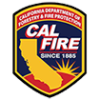Practice Areas
Fraud
There are many examples of consumer fraud. Although most businesses and individuals operate honestly, or at least within the law, there appears to be a large and unending supply of wrongdoers who are simply out to trick consumers for profit.
Types of Consumer Fraud
Consumer fraud occurs when an individual pays for a service, a product or property that turns out to be something significantly different (usually less) than what was advertised or promised. Consumer fraud may involve the following:
- Computers and the Internet: Shopping and e-payments; privacy and security; spam e-mail; web scams.
- Identity Theft: Identity theft is a huge, relatively new type of consumer fraud.
- Credit and Loans: Credit reports and scoring; credit cards; unlawfully high interest rates or other charges for consumer credit or consumer loans; unfair or harassing debt collection practices.
- Real Estate: Mortgage fraud; real estate and landlord/tenant fraud.
- Automobiles: Financing, leasing, buying or renting a car; maintenance; “lemon” automobiles.
- Telemarketing and Telephone Services: Phone services; prizes and sweepstakes; telemarketing scams; unauthorized charges; fake charities.
- Diet, Health, and Fitness: Drugs and dietary supplements; devices, procedures and treatments; weight loss products.
- Education — Scholarships; job placement.
- Investment and Business Opportunities: Investment schemes; work-at-home schemes; franchise or business opportunities.
- Shopping for Products and Services: Home improvement; buying plans; funerals; jewelry and art; legal services; travel services; purposely confusing consumer contracts; “bait and switch;” “fly by night” businesses.
- Quackery and Other Unscrupulous Conduct: In the medical, pharmaceutical, bug extermination, accounting, building and construction fields among others.
- Insurance: Unlawful insurance premium surcharges; bad faith denial of insurance coverage.
Consumer Fraud Laws
Although state and federal consumer fraud laws have been implemented in the effort to protect consumers from all this deception and fraud, the enforcement of these laws is not eliminating the problem. In addition, fraudsters are constantly coming up with new ways to deceive innocent victims.
Seek Help and a Legal Remedy
To compound the problem many people fail to seek help or a remedy after they’ve been the victims of consumer fraud — whether because of embarrassment over having been tricked, because they don’t even realize they’ve been defrauded or because it’s been quite a while since the fraud took place and the victim thinks there’s nothing that can be done.
However, there are several ways that a victim of consumer fraud can seek relief, including local and national consumer groups and their state Attorney General’s office. Most states have consumer protection laws that allow a victim of fraud to obtain restitution, sometimes for triple the amount of money he or she was tricked out of.
A civil legal action against the perpetrators of the consumer fraud can be initiated by a private law firm. We have extensive experience with consumer fraud cases, and we can help:
- identify the people responsible for the fraud.
- gather documentary evidence of the fraud.
- identify any co-conspirators.
- gather evidence of a continuing course or plan of fraudulent conduct.
- find other instances of fraud committed by the perpetrators and other victims.
Consumer Fraud and Class Actions
Most perpetrators of fraud have deceived many people — not just one or two individuals. Consequently, a class action may be the appropriate tool for getting a legal remedy for your damages. In a class action, a group or “class” of people who have been defrauded by the same company or individual band together to take legal action.
Our attorneys are experienced in filing and pursuing class actions for consumer fraud and we will be able to tell you whether your particular circumstances are appropriate for a class action.
Contact us today if you feel that you’ve been the victim of consumer fraud. We can arrange a free consultation for you to explore the details of your case, answer your questions and discuss your legal rights.








